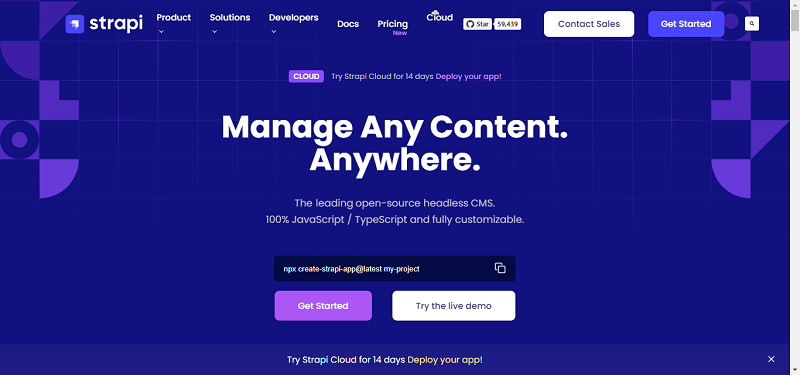When I was growing up in the 1970’s, IBM ruled the roost in corporate data centers. If you walked into a typical data center, nearly every piece of gear had an IBM logo on it and few believed that there were viable ways to compete. IBM made a point of having proprietary interfaces to disk drives, printers, and dozens of other peripheral devices. The idea was to lock customers into an all-IBM ecosystem. The few competitors that came along all tried the same strategy. In Boston, Digital Equipment Corp came out with their VAX mini-computers, complete with a line of disk drives and other peripherals, again totally incompatible with IBM and everybody else.
Then, along came a startup called EMC with a new idea: consider IBM’s interfaces to be a de facto standard and introduce disk storage devices that were plug-compatible with IBM’s. You could simply unplug the IBM disk and plug in the EMC disk and save 30%! The only reason not to buy them was the risk of doing business with a relatively small company. Remember, “nobody ever got fired for buying IBM” – but EMC soon ate IBM’s lunch in disk storage. Then IBM lost their edge in printers, memory boards, and other peripherals. This proves that no matter how big you are, no matter how many great engineers you employ, no company can be best at everything.
Over the next 20 years, proprietary interfaces morphed into de facto standards, and then actual standards with independent governing bodies. The industry turned to best-of-breed specialists: Intel made CPU’s, Cisco and Juniper made networking gear, HP made printers, Seagate and WD made disk drives, and so on. Today, there are dozens of brands of equipment all working together and nobody tries to make everything any more in modern data centers. There are no soup-to-nuts vendors like there were in the early days of mainframes and mini-computers.
Now, we are starting to see a replay of this movie among cloud vendors. Today, three highly-vertically-integrated vendors, Amazon, Microsoft, and Google, are vying to have 100% of their customers’ cloud services business. Each has proprietary API’s, and their services, such as CDN’s, AI programs, and analytics, are stubbornly incompatible making it very hard for customers to switch without completely rewriting their applications. They all also charge egress fees making it expensive to take data out. For example, if you have ten petabytes of data stored in Amazon S3 Glacier and you decide you want to move that data to another cloud storage vendor, it will cost you roughly a half million dollars in egress charges, which is more than it costs to store the data for a whole year. So, the decision to take your football and go home can be agonizing and infuriating. Is this really the way the cloud is going to evolve?
Amazon and Microsoft, the two leaders in cloud infrastructure, both offer well over 100 different cloud products, including storage, compute, AI, analytics, CDN’s, and much more. Their product development priorities are based on developing everything their customers need in the cloud – they want to own as much of the cloud as possible, if not all of it.
But, fissures like those that hit the mainframe monopolies 40 years ago are already emerging. Plummeting network costs are making it really cheap to move large amounts of data over the public Internet. According to a recent survey by IDC, the collective sum of the world’s data will grow from 33 zettabytes this year to a 175ZB by 2025 and data is accumulating too quickly (doubling every two years) for anyone to stay ahead of the curve on their own. And just when Amazon, Google, and Microsoft have built huge businesses on vast, highly centralized data centers, processing and storage is starting to splinter and move to the edges of the network. 5G is going to push this trend into overdrive because billions of new devices will suddenly be able to connect to the Internet and start sending data. Cloud vendors like Stackpath, Packet, Limelight, and others are thriving by competing directly with bits of Amazon’s services. Others compete by offering S3-compatible storage that is both faster and cheaper. Dozens of companies with specialties ranging from numerical analytics to facial recognition are offering best-of-breed innovations in their narrow spaces. And all these pieces – compute in the cloud, storage, analytics, CDN’s, etc. – all work together. Ironically, many work together because they have adopted Amazon’s API’s as a de facto standard, making it relatively easy for customers migrate.
There are always going to be very smart people with better ideas who don’t work for Amazon or the others. The question is – will the forces of innovation lead us to a multi-cloud world where customers can pick the best cloud storage vendor, the best analytics vendor, the best bare metal compute vendor, the best CDN, and make it all work together?
History would say “yes” because customers don’t like vendor lock-in; they don’t like being told that they have to buy someone’s second-rate storage in order to get a discount on compute, and they don’t like to give money to companies that will ultimately compete with them (think Amazon Studios, Whole Foods Market, etc). And nobody likes having all their eggs in one basket.
This decentralization of the cloud will usher in a new golden age for MSP’s and system integrators who are learning to make all these new cloud services work together in a way that is optimized for their customers. Ten years from now the cloud will be a much more vibrant marketplace of interconnected clouds and a wide variety of vendors with different specialties. Amazon and Microsoft will continue to thrive because the whole ecosystem is growing so rapidly. But the tricks that they are pulling today to lock in customers will have to be curtailed because customers will demand a multi-cloud environment where they can pick and choose services from multiple vendors and they are going to demand that they all work together harmoniously. Anyone who tries to hold the customer hostage will end up like IBM.
By David Friend





